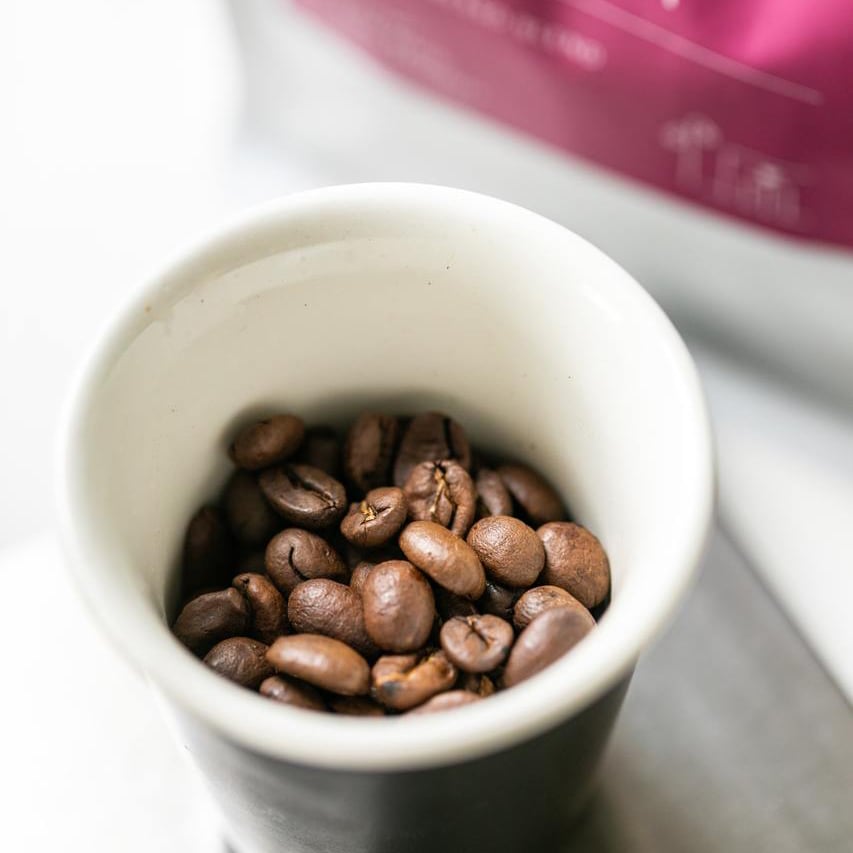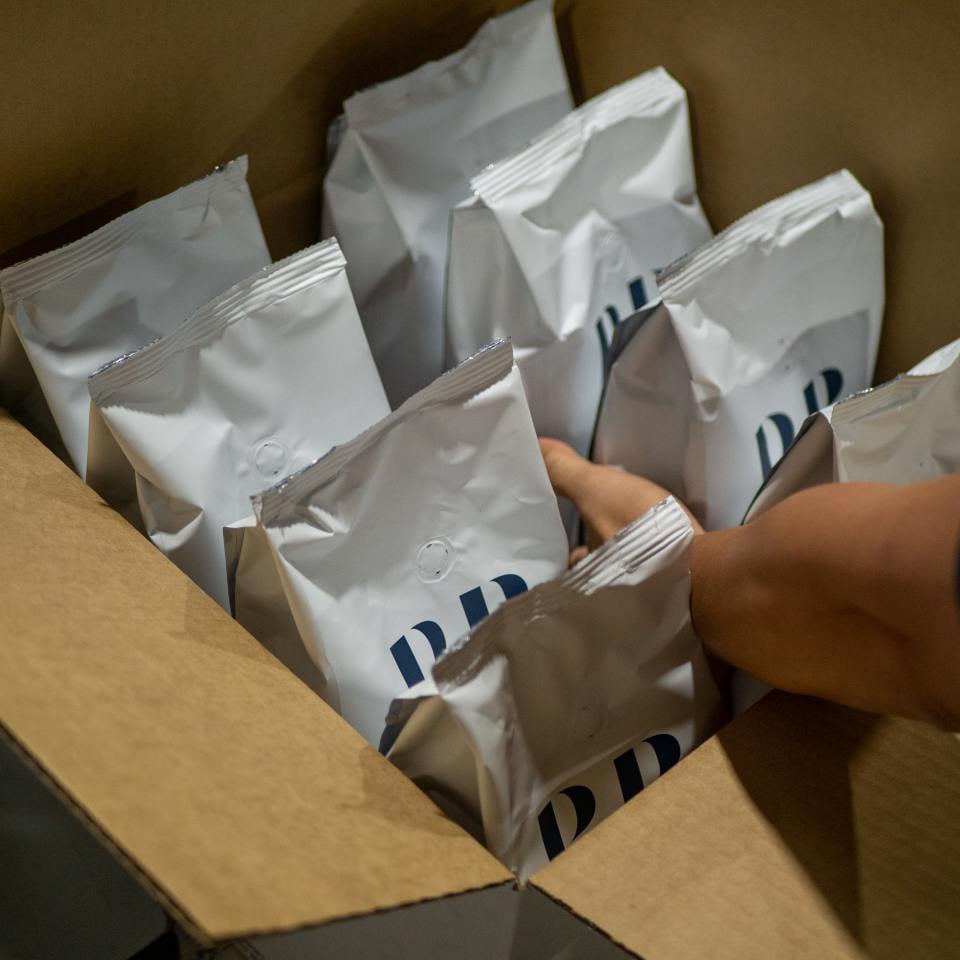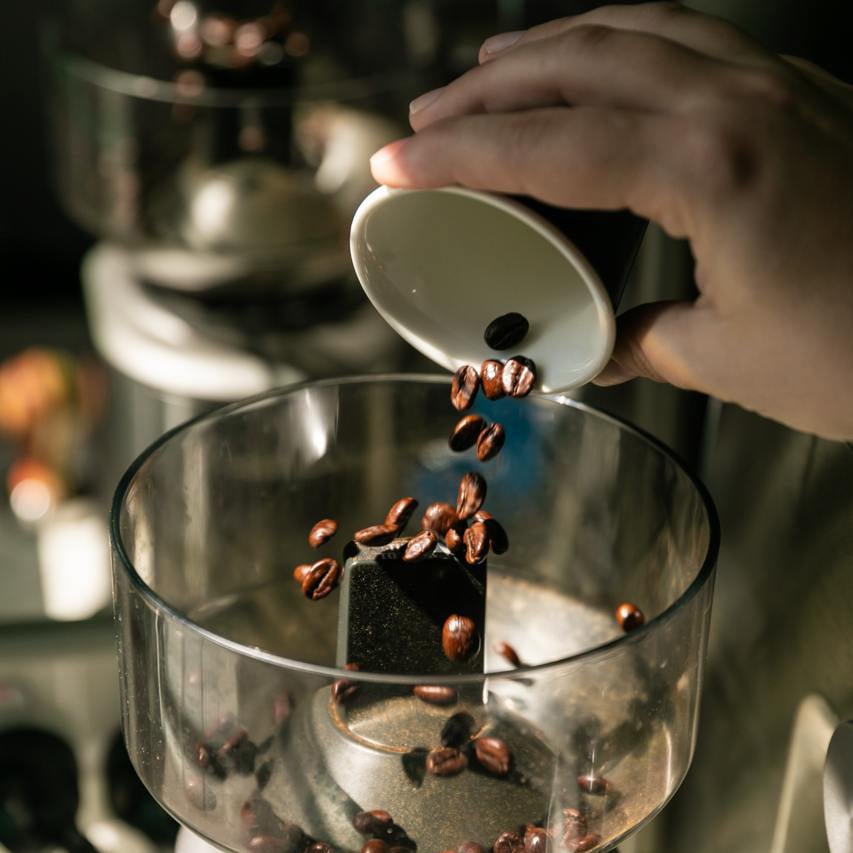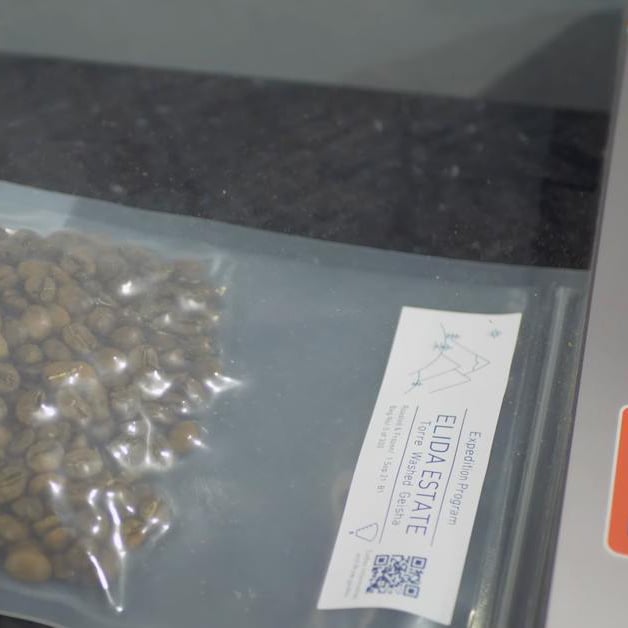Have you ever wondered why your freshly roasted coffee tastes different after a few weeks? Or perhaps you've been hesitant to open a new bag, worried that it might be too old. The truth is that coffee beans, like fine wine, transform over time. Let's delve into the fascinating world of coffee ageing. My name’s Martin, I’m one of Pablo & Rusty’s Business Specialists. In my day job, I help our cafe partners produce delicious P&R coffee. And of course, I brew a lot of coffee at home.

The science behind coffee ageing
Coffee beans have a complex mixture of compounds that contribute to their flavour profile. After coffee is roasted and bagged up, carbon dioxide is released, a process known as degassing. This is why freshly roasted coffee often releases a burst of carbon dioxide when opened, it’s also why we have a one-way valve on our bags to ensure the bags don't expand.
As coffee ages, subtle changes occur. The volatile aromatic compounds responsible for coffee's vibrant flavours begin to dissipate. This doesn't mean your coffee becomes undrinkable, but it does mean the flavour profile will evolve. Some people prefer the bolder, brighter flavours of freshly roasted coffee, while others enjoy the mellower, smoother profile of aged beans.

How to store coffee for optimal freshness
Proper storage is essential for preserving coffee freshness. Here are some tips:
Use airtight containers: Transfer your coffee beans to an airtight container after opening the original bag. This helps to minimise exposure to air and moisture.
Store in a cool, dark place: Avoid storing coffee in direct sunlight or near heat sources. A pantry or cupboard is ideal.
Grind fresh: Grinding coffee beans releases their flavours, so grind only what you need for immediate consumption.
We’ve also got some videos and articles on how to store your coffee.

Experimenting with coffee ageing
To truly appreciate the nuances of coffee ageing, consider conducting a taste test. Purchase multiple bags of the same coffee, roasted on the same day. Open one bag after a week, another after two weeks, and so on. By comparing the flavours, you'll gain a deeper understanding of how ageing affects your favourite coffee. I would almost guarantee you’ll be surprised with the results.
-v1721873226235.jpg)
So, when is coffee too old?
While the perfect age for coffee is subjective, we generally recommend consuming coffee beans within 3-4 weeks of roasting for optimal flavour. However, if the coffee is stored in ideal conditions, it can maintain its quality for up to 5-6 weeks. At Pablo & Rusty's we take an extra step: we flush out excess oxygen with inert nitrogen to extend the coffee's freshness, allowing you to enjoy your favourite brew for an even longer period. This is especially beneficial for those in our community who are part of our coffee subscription service. Whilst they’ll always get fresh coffee delivered to their door, it’ll also stay fresher for longer. And for those who are keen to maximise the freshness of their coffee check out our Expedition program. We roast, vacuum pack and deep freeze the coffee all within hours of the roast. When we ship it to you it defrosts and you can control when you get to enjoy these exceptional coffees! (Read more about freezing coffee here)

Conclusion
The age of your coffee beans significantly impacts their flavour profile. By understanding the coffee ageing process and following proper storage guidelines, you can savour your favourite brew at its peak. Experiment with different ageing times to discover your preferred flavour profile. Grinding coffee beans when you need them will always deliver the most vibrant and complex flavours.
-v1721873291862.jpg)
Happy brewing!



